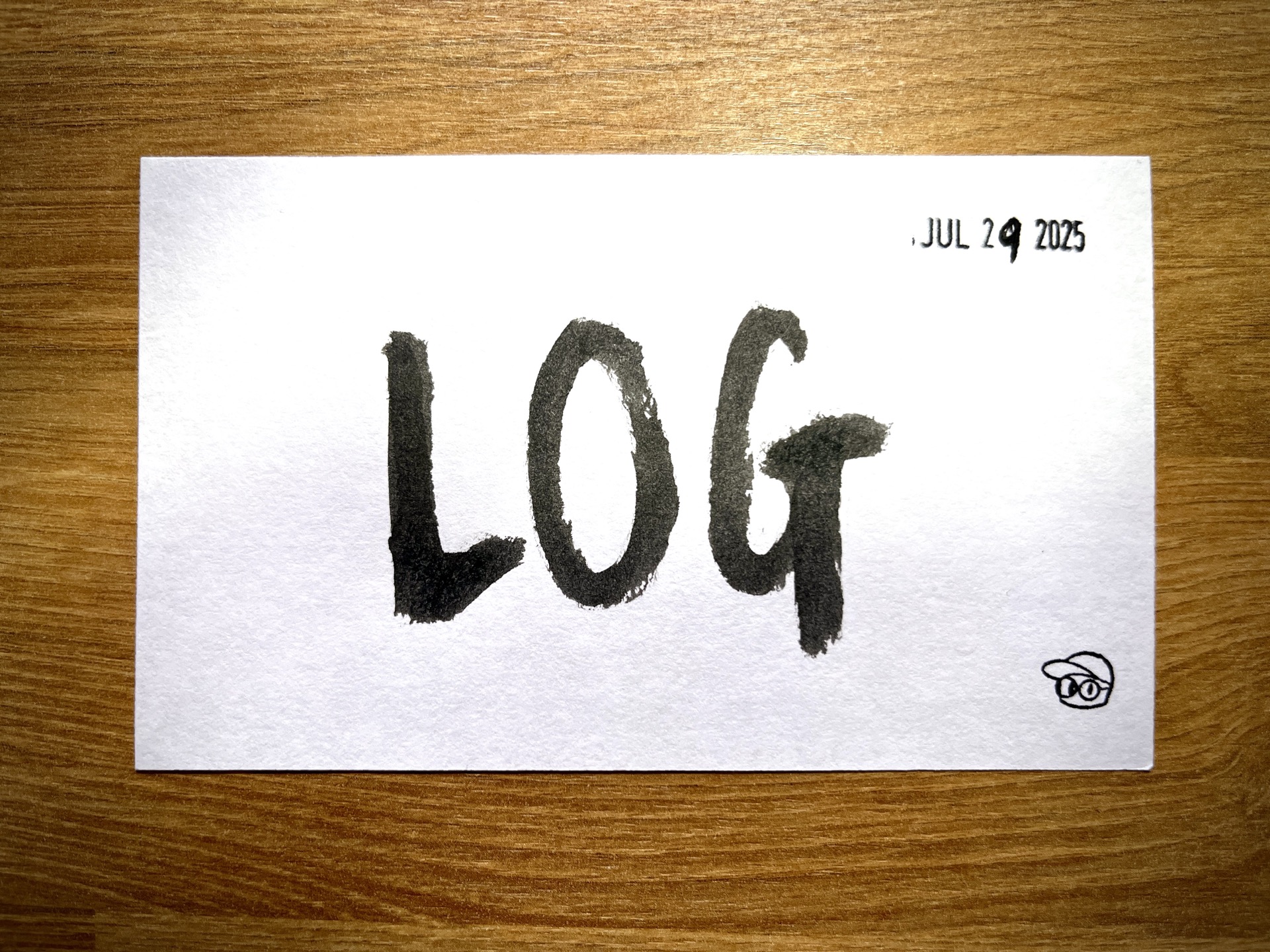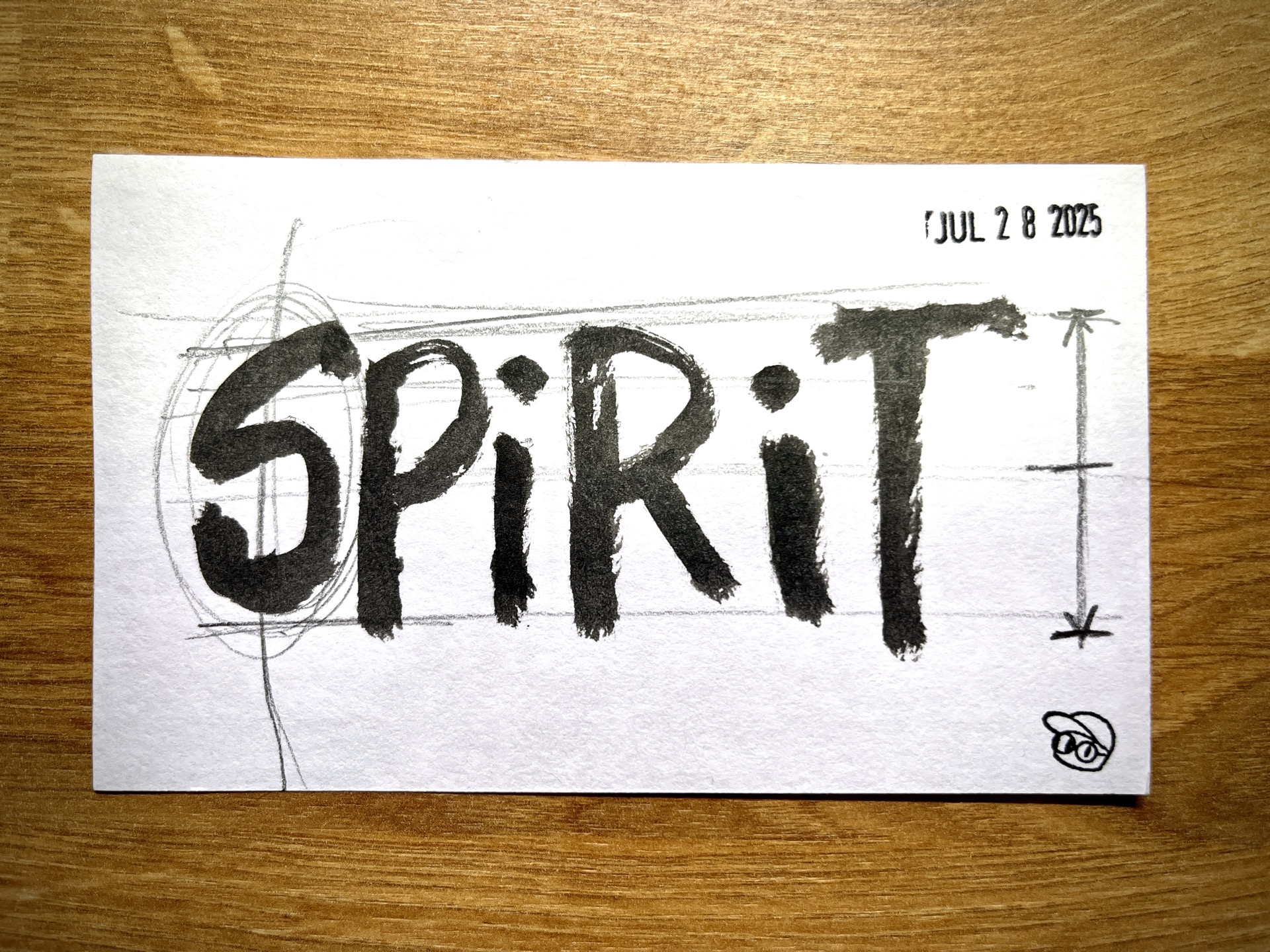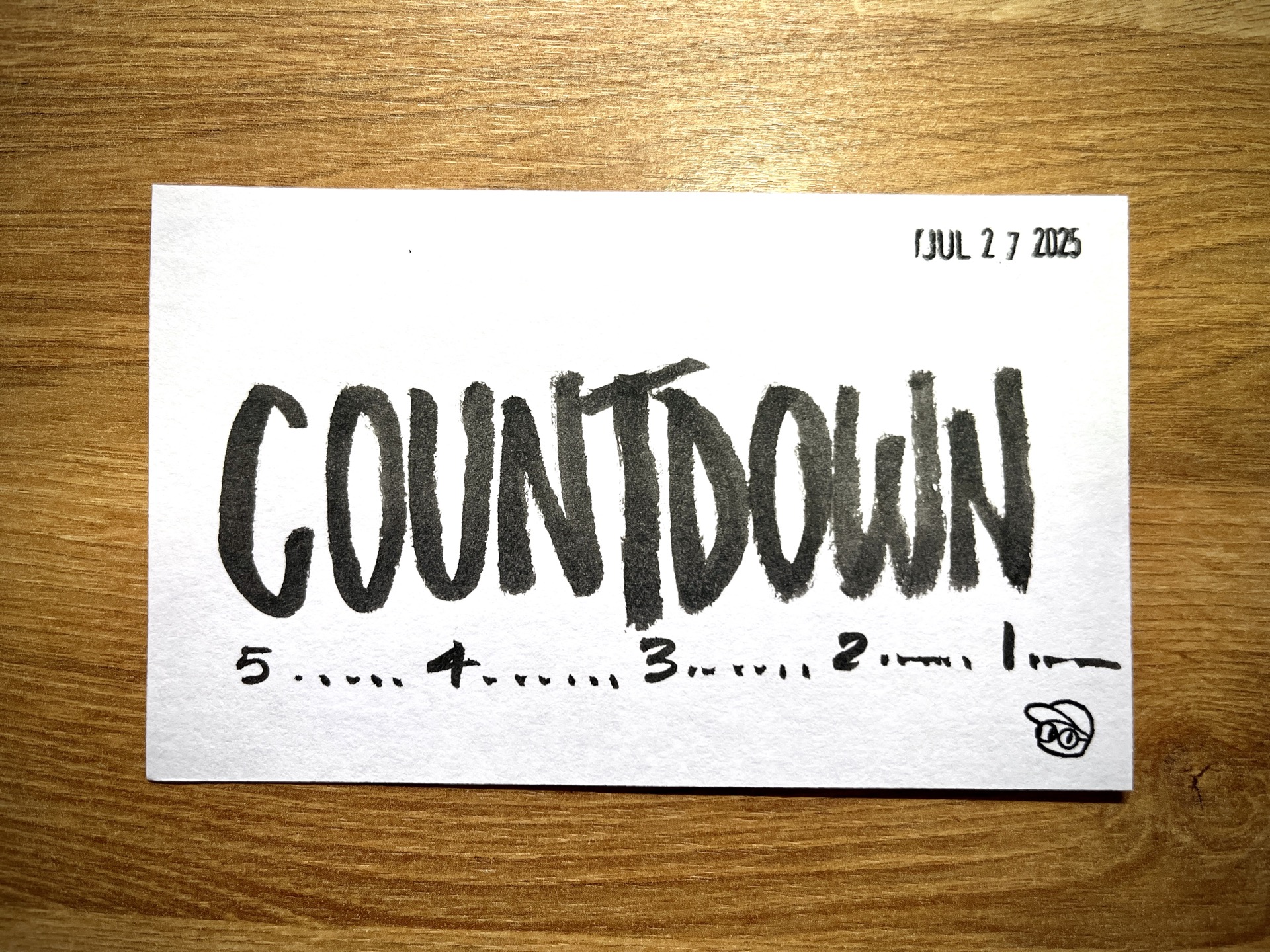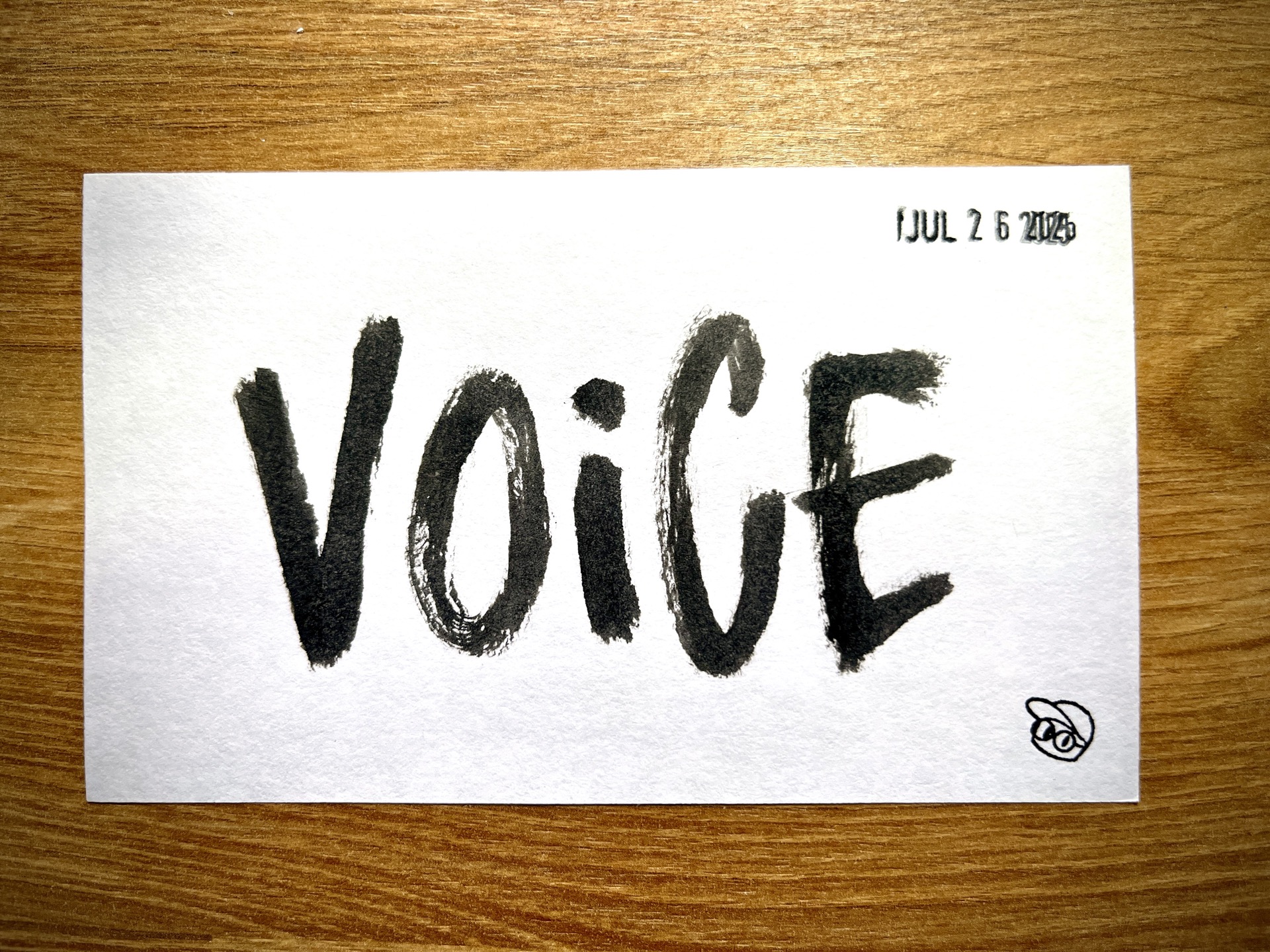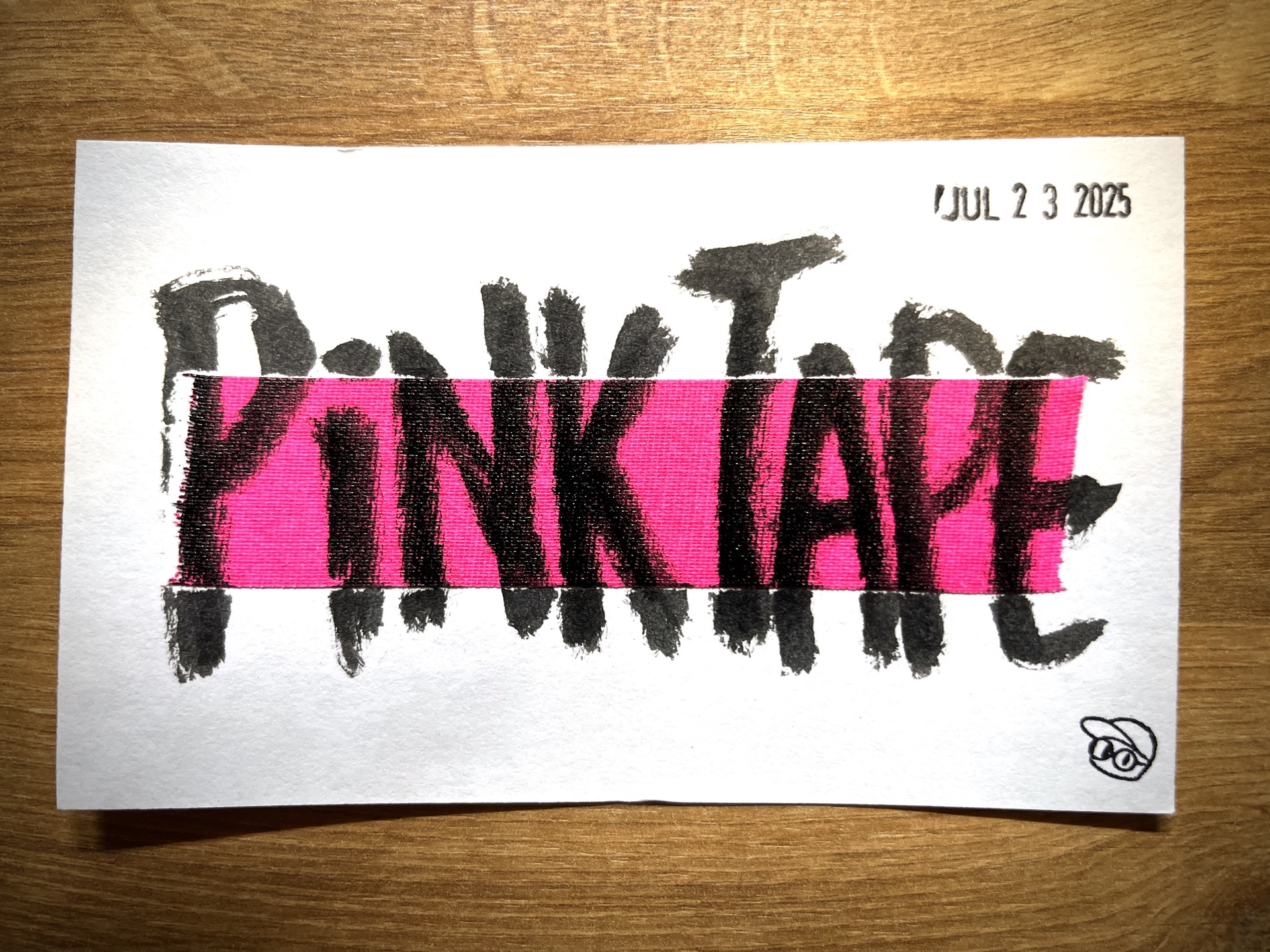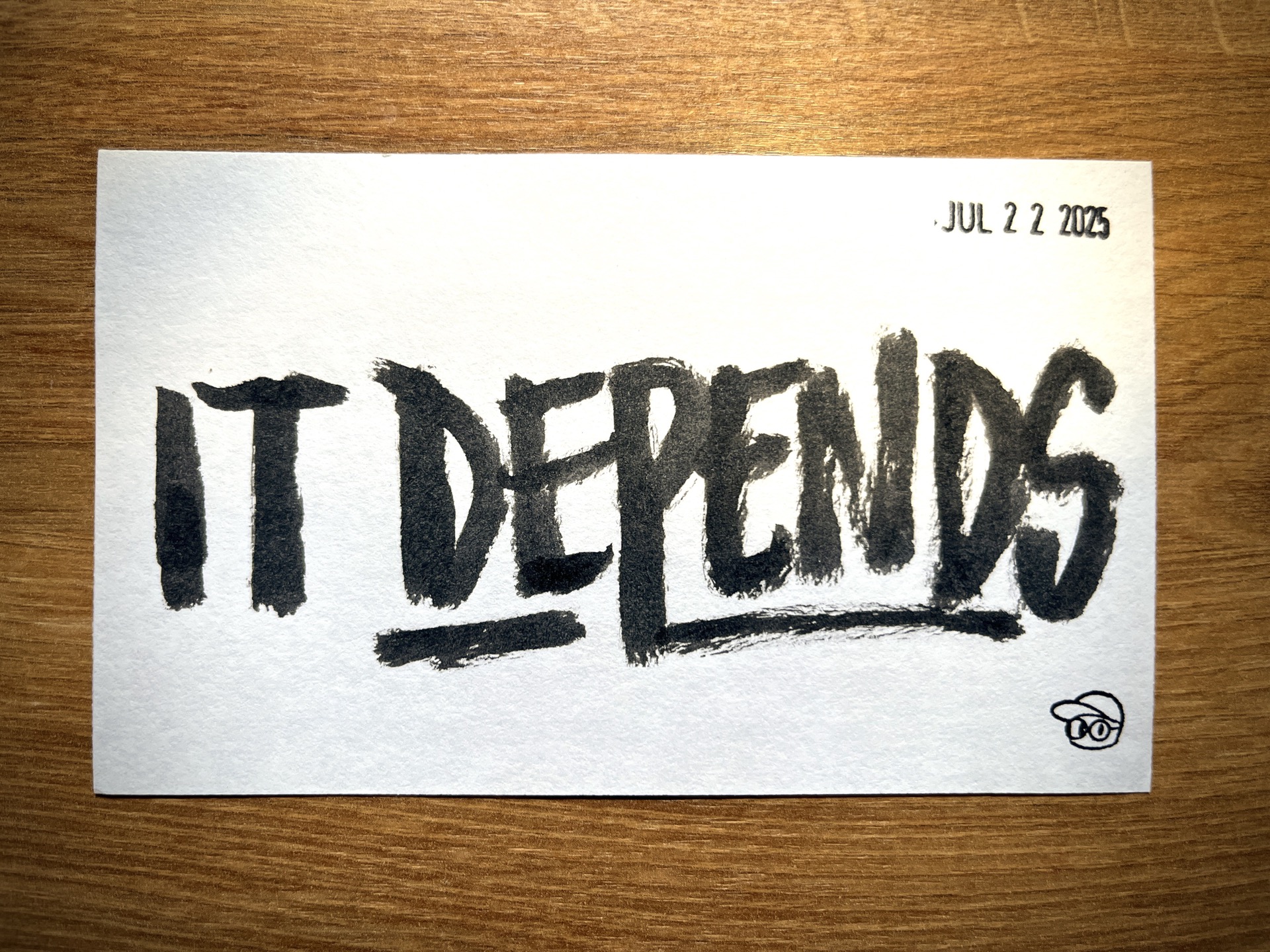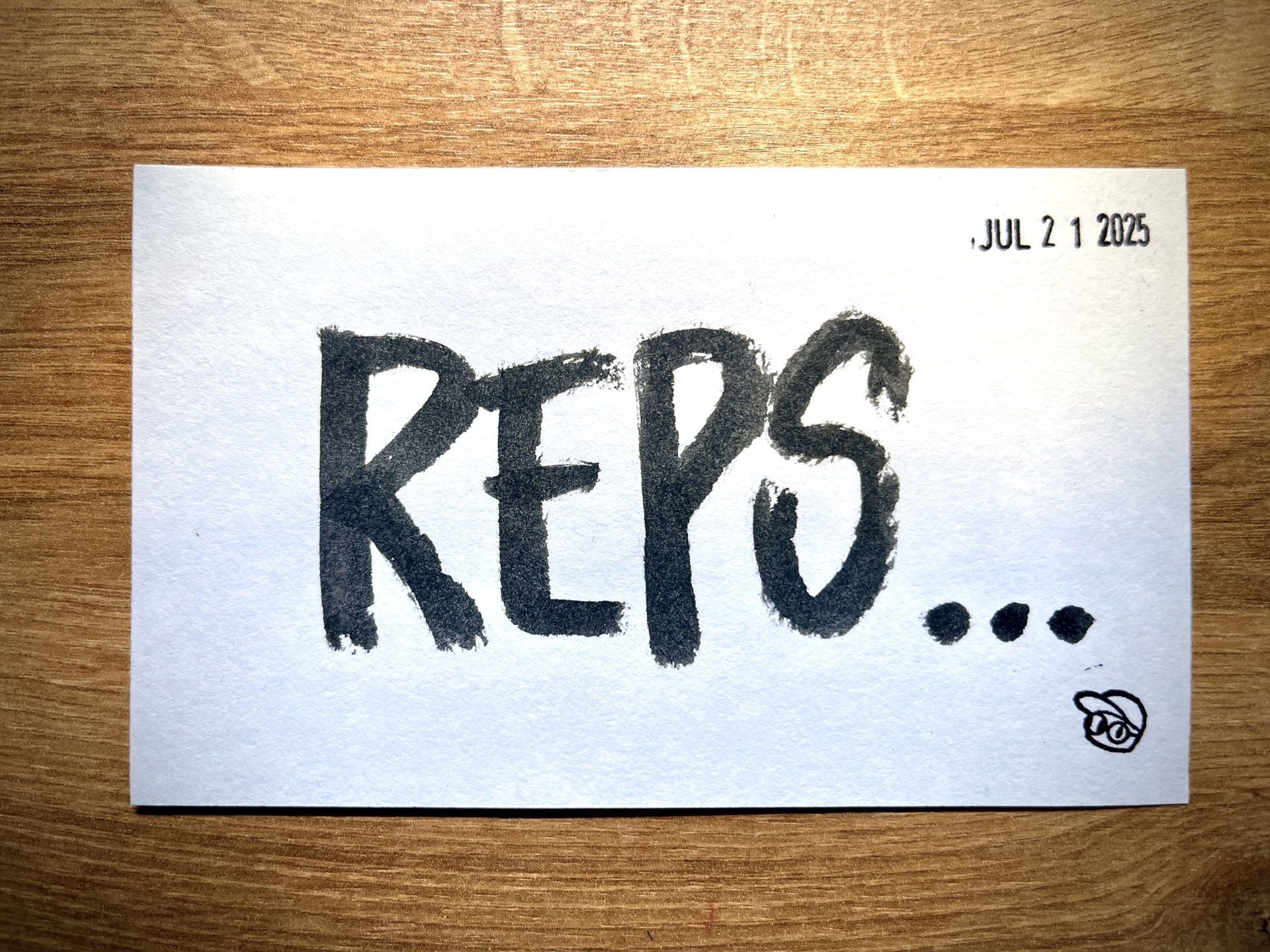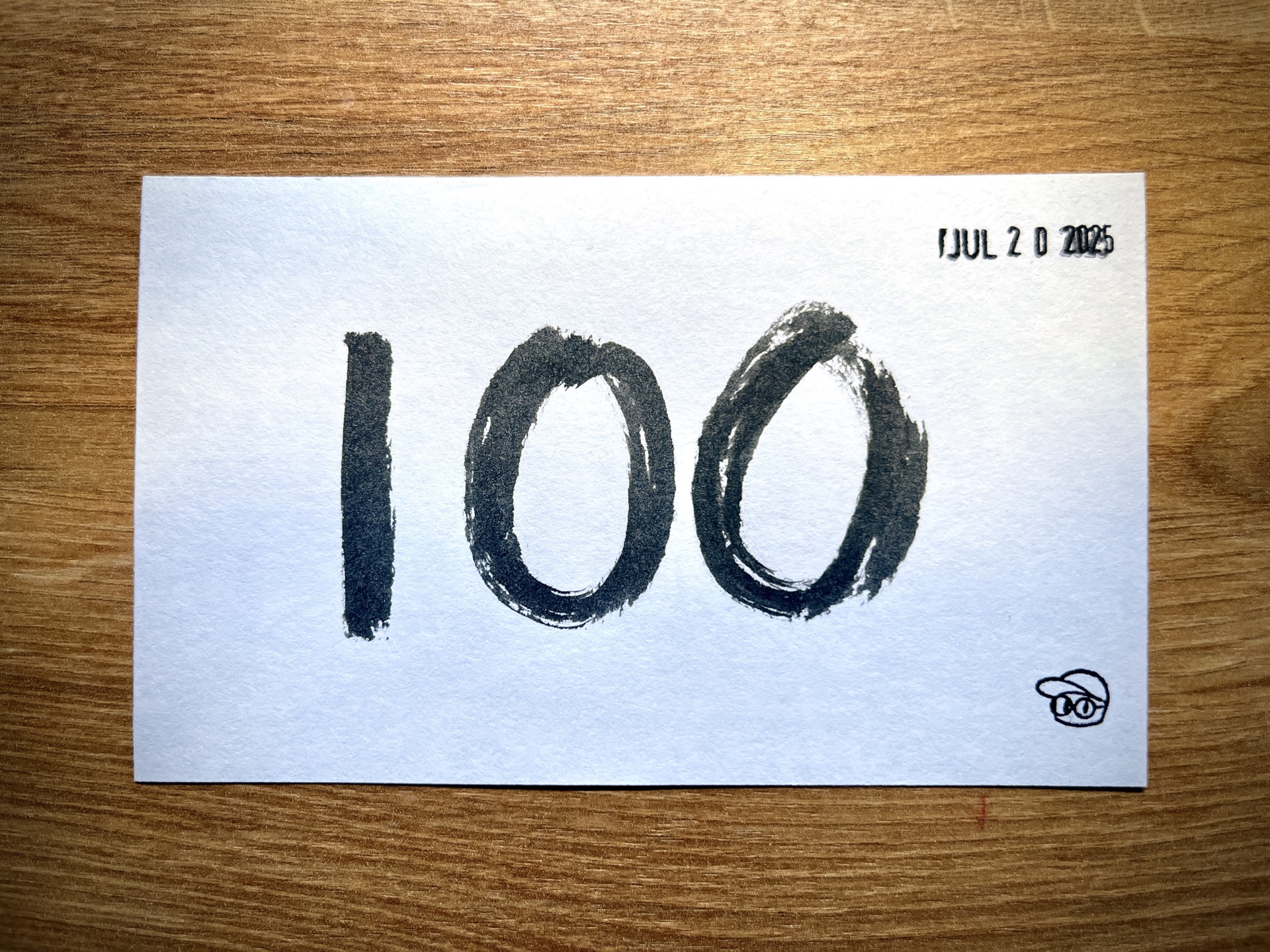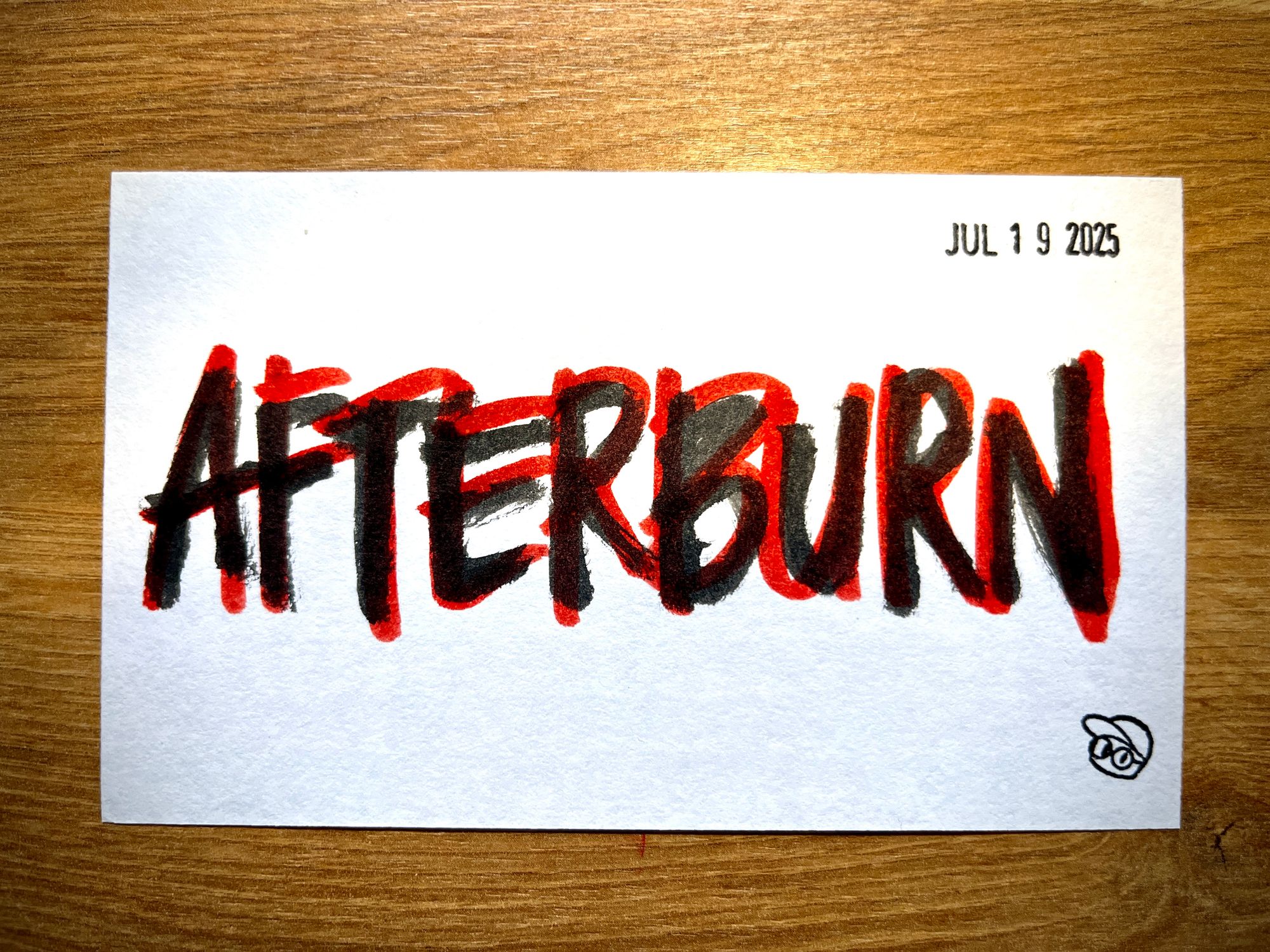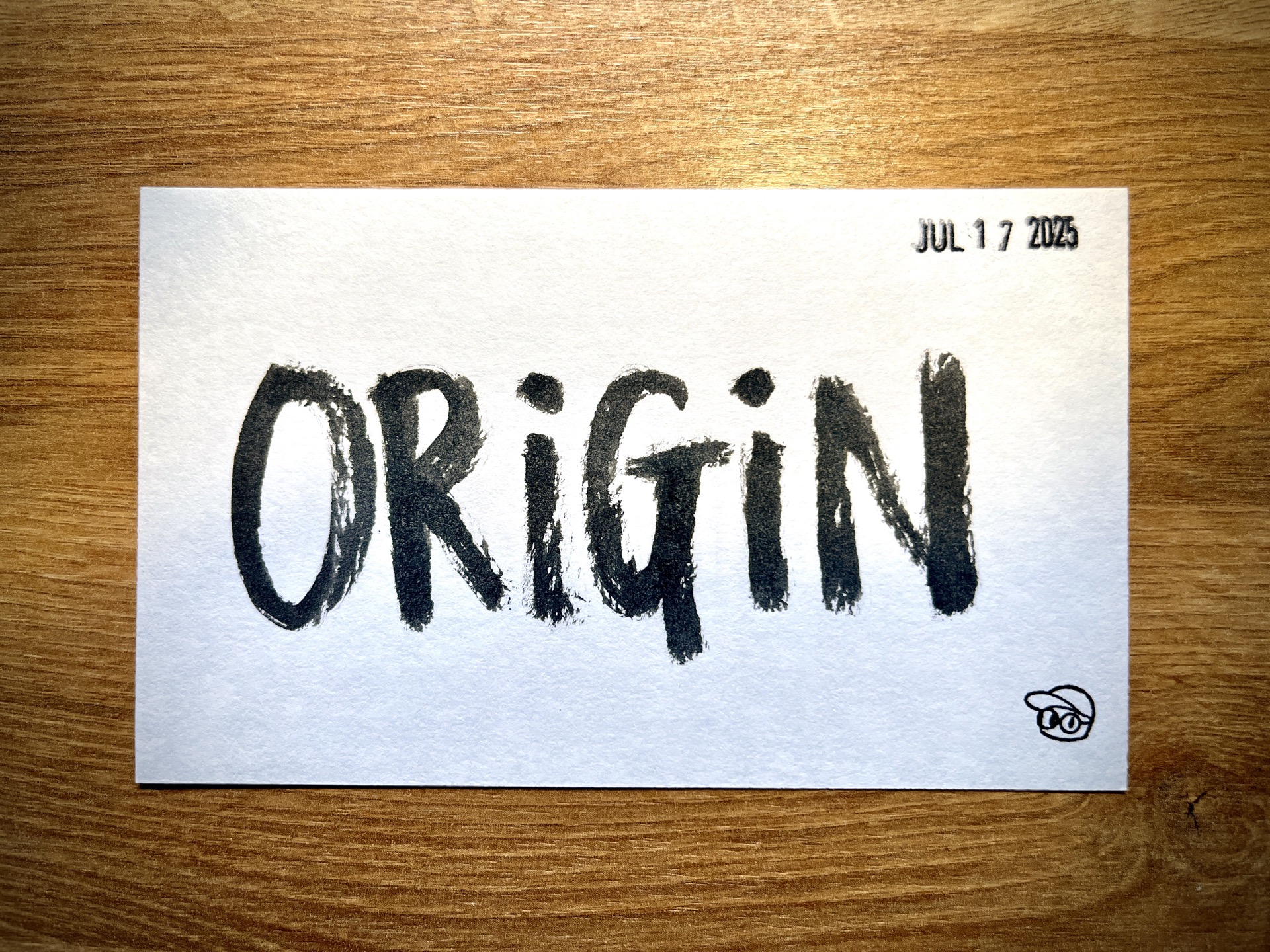Creativity
Log
I’ve logged many things. Maybe too many things. Thoughts, wins, random grocery prices. It’s not about the notes themselves, but the intention behind writing them down.
Spirit
Great work doesn’t start with a perfect file. It starts with knowing what you’re trying to bring to life — and protecting that spirit, no matter how messy it gets.
Countdown
Time flies. Thankfully, I’ve kept track — moments chosen with care, decisions deliberate, marking where I’ve been and what comes next.
Voice
Finding your voice isn’t magic. It’s repetition, it’s cringe, and it’s the weird moment when you realize you’re no longer imitating anyone else.
Pink tape
A tiny strip of pink tape started as a way to mark my tools. Somewhere along the way, it became part of my identity. My brand.
It depends
“It depends” is always true. It’s the easy answer. But for the hard questions — it’s rarely the right one.
Reps
You don’t need to add hours to get better. You just need to notice the reps you already do. Same work. Sharper reps.
100
100 days in. The goal isn’t out there somewhere—it’s here. It’s in showing up, writing, and sharing every day.
Afterburn
There’s a subtle hum after launch—a space between exhale and inhale. It’s where relief meets reflection and gratitude fills the room.
Origin
A quiet moment this week made me reflect on why I started. It has nothing to do with software—and everything to do with spark.
Archived
Archiving is how I close chapters. Not just to organize the work—but to honor it. To say: this mattered. This happened. We did it.
Tone
Tone is your fingerprint. Your feel. But it’s not a prerequisite. It’s the product of effort. Start before you “find your sound.” Then find it.
Obsessive
A random video from over 10 years ago changed how I think about craft. Joy, knowledge, taste—shared without ego. Passion isn’t a performance—it’s an invitation.
Packing
Packing isn’t just about stuff. It’s about seeing clearly—what you carry, how it fits, and who you are. One bag at a time, I’m learning how I think.
Swag
A team, a spark, a tiny skateboard. I made a surprise gift no one asked for—and no one saw coming. It started with list and ended around a round table.
